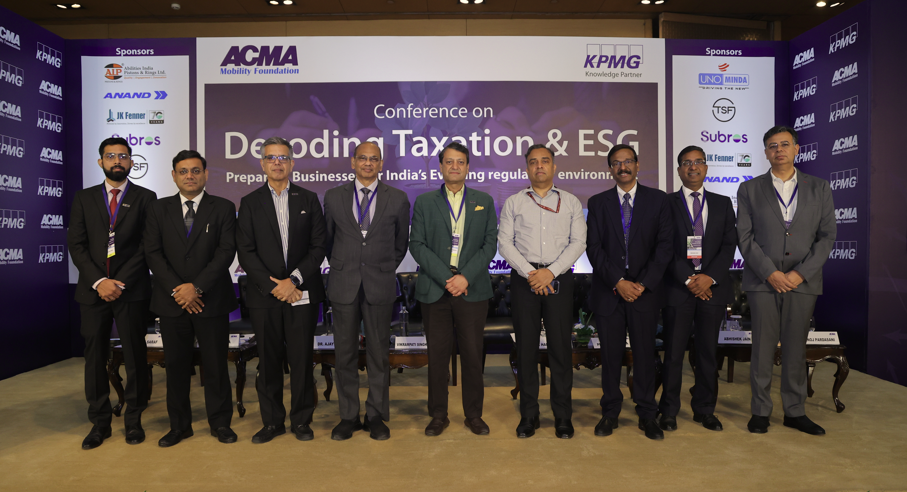
The ACMA Mobility Foundation (AMF), in partnership with KPMG, organised a forum on “Decoding Taxation & ESG: Preparing Businesses for India’s Evolving Regulatory Environment” in New Delhi, bringing together policymakers, taxation experts, and industry leaders to deliberate on tax reforms and Environmental, Social and Governance (ESG) integration across the automotive sector.
The event was attended by Hanif Qureshi, Additional Secretary, Ministry of Heavy Industries, as the Chief Guest, along with Vikrampati Singhania, President, ACMA and Managing Director, J K Fenner (India) Ltd.; Vinnie Mehta, Director General, ACMA; and Prashant Verma, Executive Vice President – Supply Chain, Maruti Suzuki India Ltd. Several senior representatives from the automotive, finance and sustainability domains also participated in panel discussions.
Need for policy regulation in auto sector
In his welcome address, Vikrampati Singhania emphasised ACMA’s continued focus on policy dialogue and industry capability-building to prepare the automotive ecosystem for regulatory transitions. “Through our dedicated ESG cluster initiatives, ACMA has already certified over 200 ESG champions across the component sector. As India@2047 takes shape, tax rationalisation and ESG adoption will be the twin pillars of competitiveness and credibility for our industry,” he said.
Hanif Qureshi underscored the government’s commitment to creating a predictable policy environment that supports competitiveness and responsibility. “As the industry now turns its focus toward sustainability and technology-led growth, the government remains committed to fostering policy coherence and ease of doing business. Together with industry partners, we aim to strengthen India’s position as a global hub for sustainable and intelligent mobility solutions by 2047, in line with the Prime Minister’s vision of Viksit Bharat,” he said.
Vinnie Mehta noted that the component sector’s focus has shifted from scale to global trust and relevance. “India’s auto components sector is no longer just about scale, it is about earning trust and relevance in global supply chains. With evolving tax frameworks and ESG expectations worldwide, our industry must continue its push for transparency, cost competitiveness and responsiveness. Through forums like this, the ACMA Mobility Foundation is enabling the architecture to position Indian suppliers not just as input providers but as strategic partners in the world’s mobility roadmap,” he added.
The forum featured expert-led sessions on taxation, regulatory outlook and ESG transformation in the auto component sector, with speakers from KPMG India, BSR & Co. LLP, BMW India, Tata Motors, Anand Group and ARAI sharing insights on aligning fiscal policy with sustainable business practices.
